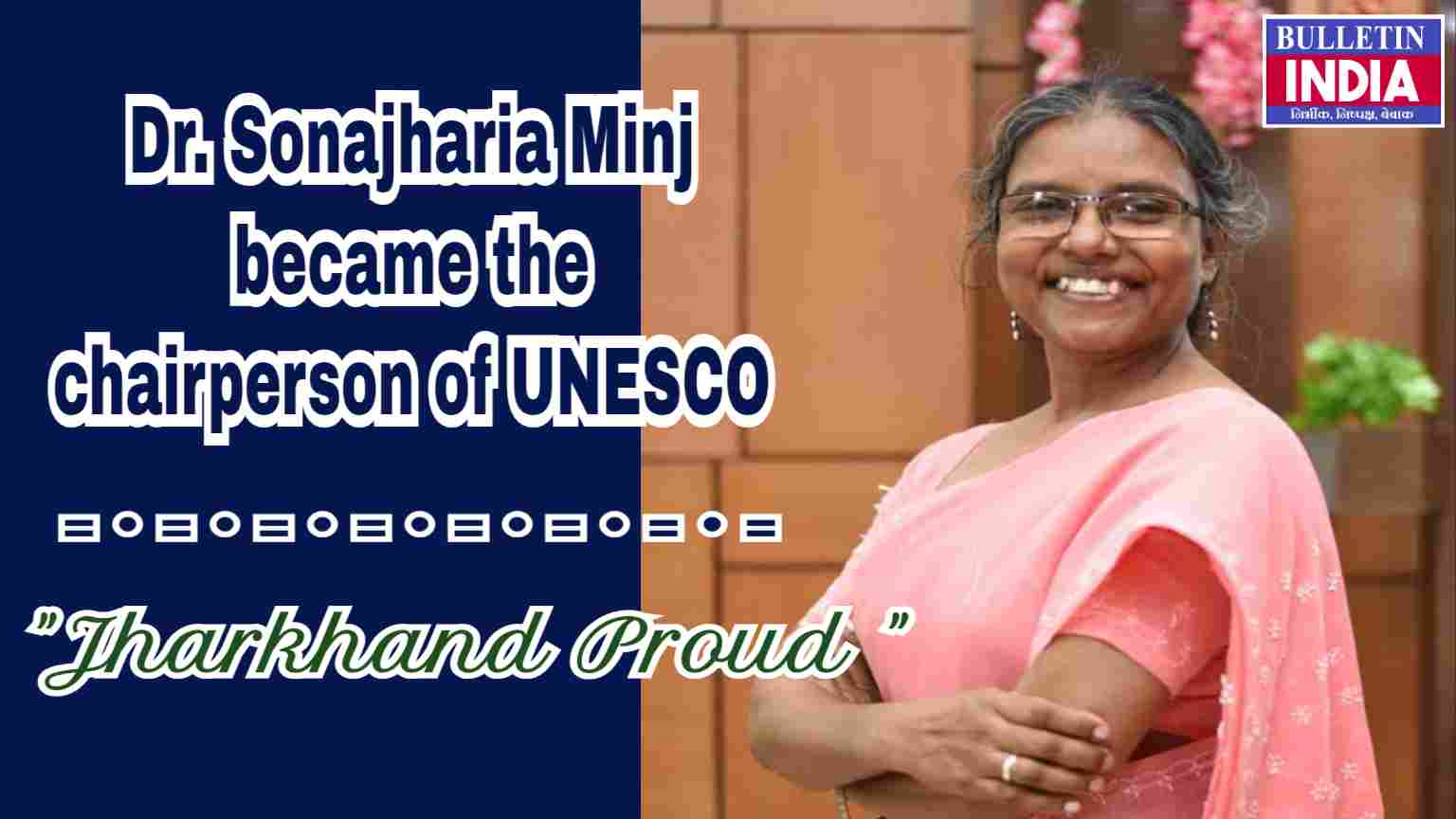Bulletin India, Desk.
In a moment of immense pride for the state of Jharkhand and the nation, Dr. Sonajharia Minz, a distinguished academic and social advocate, has been appointed as the Co-Chairperson of the UNESCO Chair. With this, she becomes the first tribal woman from India to achieve this prestigious global position.

Dr. Minz hails from Gumla district in Jharkhand and has carved her path to global recognition through resilience, dedication, and a relentless commitment to education and social justice. Her appointment marks a significant milestone in the representation of indigenous voices on international platforms.
UNESCO, the United Nations Educational, Scientific and Cultural Organization, plays a crucial role in promoting global peace, preserving cultural heritage, and fostering sustainable development. Having a tribal woman from India in such a high-ranking position is not only symbolic of progress but also reinforces the importance of inclusion and diversity in global leadership.
Her journey from a remote district in Jharkhand to a leadership role at UNESCO stands as a powerful inspiration, especially for young girls and members of marginalized communities. Dr. Minz’s career has long been associated with championing the rights of tribal communities, preserving indigenous knowledge systems, and promoting inclusive education.
The state government, academic institutions, and civil society organizations across India have expressed their admiration and extended their heartfelt congratulations to Dr. Minz on this historic achievement.
“It is an honor not just for Jharkhand, but for the entire nation. We hope that under her co-leadership, the UNESCO Chair will bring greater focus to the preservation and promotion of lesser-known heritage sites and indigenous knowledge across the world,” a government spokesperson said.

As Dr. Minz embarks on this new chapter, expectations are high that her leadership will create new pathways for safeguarding the cultural, historical, and intellectual wealth of underrepresented communities globally.

